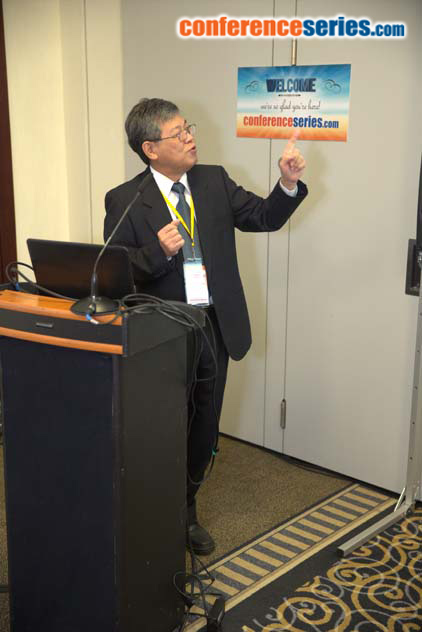
Tzu-Chen Hung
National Taipei University of Technology, Taiwan
Title: Organic Rankine cycle – A negative-carbon approach in power generation from low-temperature waste heat
Biography
Biography: Tzu-Chen Hung
Abstract
Unlike conventional power conversion from fuel source, organic Rankine cycle (ORC) can efficiently convert wasted low-temperature heat to power. That’s why it is said as a “negative carbon” approach in power generation. Moreover, with rising concerns in environment and global warming, ORC for waste heat recovery is expected commercially enormous. A special advantage of ORC is that it has wide spectrum in the selection of working fluid to fit optimal power generation. In general, near isentropic fluids are more favorable. Systematic studies have been worldwide implemented for the selection of appropriate working fluids with respect to the evaporation temperature, available temperature range, operational safety, and environment friendly, etc. All expander feature, heat exchanger behavior and pump performance significantly influence the cycle operation characteristic. Therefore, how to efficiently integrate ORC processes with various conditions of heat sources and sinks is a challenge for ORC commercialization. The stand-alone operation strategy can run steadily at random operation zone, whereas the gird connect operation strategy is suitable for greater heat input. ORC systems have been generally commercialized with the scale greater than 50 kWe. Nowadays, laboratory-scale ORCs have gradually obtained good cycle performance for the liquid heat source less than 120°C. Once small-scale ORC is commercialized, the applications would be more and more flexible. The economic analysis of the ORC systems is performed according to the module costing technique, in which various kinds of economic factors have been proposed, such as APR (heat exchanger area per unit power output), LEC (levelized energy cost), EPC (electricity production cost), etc. Electricity supply is a critical problem in developing or undeveloped territories. We expect that low-cost ORC could be employed in those areas to improve their living standard.
Recent Publications
1.P.J. Li, T.C. Hung*, B.S. Pei, J.R. Lin, C.C. Chieng, G.P. Yu (2012) “A thermodynamic analysis of high temperature gas-cooled reactors for optimal waste heat recovery and hydrogen production,” Applied Energy, 99: 183–191.
2.J.C. Chang, C.W. Chang, T.C. Hung*, J.R. Lin, K.C. Huang (2014) “Experimental study and CFD approach for scroll type expander used in low-temperature organic Rankine cycle,” Applied Thermal Engineering, 73:1444-1452.
3.D.S. Lee, T.C. Hung*, J.R. Lin, J. Zhao (2015) “Experimental investigations on solar chimney for optimal heat collection to be utilized in organic Rankine cycle,” Applied Energy, 154:651-662.
4.J.C. Chang, T.C. Hung*, Y.L. He, W.P Zhang (2015) “Experimental study on low-temperature organic Rankine cycle utilizing scroll type expander,” Applied Energy, 155:150-159.
5.Y.Q. Feng, T.C. Hung*, S.L. Wu, C.H. Lin, B.X. Li*; K.C. Huang, J. Qin (2017) “Operation characteristic of a R123-based organic Rankine cycle depending on working fluid mass flow rates and heat source temperatures,” Energy Conversion and Management, 131: 55–68.
S.C. Yang, T.C. Hung*, Y.Q. Feng*, C.J. Wu, K.W. Wong, K.C. Huang (2017) “Experimental investigation on a 3 kW organic Rankine cycle for low-grade waste heat under different operation parameters,” Applied Thermal Engineering, 113:756–764.


